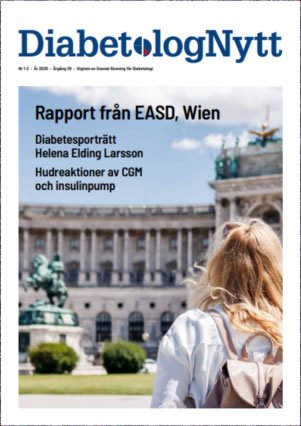A US Food and Drug advisory panel today voted 10 to 5 in favor of approving the novel glucose-lowering agent canagliflozin ( Invokana, Janssen Research & Development, LLC) for the treatment of adults with type 2 diabetes.
In a separate vote, however, the FDA’s Endocrinologic and Metabolic Drugs Advisory Committee also voted 8 to 7 that they had concerns about the cardiovascular safety of the agent.
Canagliflozin is an oral inhibitor of the sodium glucose cotransporter 2 (SGLT2). Inhibition of SGLT2 reduces resorption of glucose in the kidney, resulting in increased urinary glucose excretion, with a consequent lowering of plasma glucose levels as well as weight loss.
If approved by the FDA, canagliflozin would be the first SGLT2 inhibitor agent on the US market. In January 2012, the FDA denied approval of the SGLT2 inhibitor dapagliflozin (Bristol-Myers Squibb and AstraZeneca) because of concerns about a cancer signal. However, that drug was approved in the European Union in November 2012.
Canagliflozin does not appear to share that risk, with no signal for an increase in malignancy in about 8000 person-years of exposure.
Safety discussions by the panel circled back repeatedly to the cardiovascular risk data. The agreed-on primary endpoint for the cardiovascular safety analyses was Major Adverse Cardiovascular Events Plus (MACE-plus), defined as a composite endpoint consisting of the following adjudicated events: cardiovascular death, nonfatal myocardial infarction, nonfatal stroke, and hospitalization for unstable angina.
For all the trials combined, the endpoint occurred in 18.9% of patients taking canagliflozin and in 20.5% of patients taking the comparator agents, for a nonsignificant hazard ratio of 0.91 (95% confidence interval, 0.68 – 1.21).
However, for the individual MACE-plus component of stroke, the hazard ratio was elevated, at 1.5 (95% CI, 0.8 – 2.6). Several panel members expressed concern that there might be an elevated risk for stroke, but that the data were insufficient to be certain.
The sponsor also presented data from the ongoing Canagliflozin Cardiovascular Assessment Study (CANVAS) trial (being conducted to assess cardiovascular safety in compliance with FDA guidance issued in 2008 for all new diabetes drugs). Final results are not expected until 2015. During the first 30 days after randomization in CANVAS, there were 13 cardiovascular events in the patients receiving canagliflozin (0.45%) vs 1 in patients receiving placebo (0.07%). The hazard ratio of 6.5 was not significant because of the small number of events (95% confidence interval, 0.85 – 49.66).
Both Janssen’s analysis and that of the FDA suggested that this difference was the result of a lower-than-expected event rate in the placebo groups, but longer follow-up is needed.
Several panel members also expressed concern that the reduced efficacy of the drug in patients with renal impairment, combined with an increased incidence of volume-depletion events in those patients and the lack of long-term data, created an unfavorable shift in the benefit/risk ratio compared with patients with normal renal function.
The majority of panel members who supported the drug cited both the unmet need for new agents to treat the growing population of patients with type 2 diabetes and canagliflozin’s absence of hypoglycemia combined with the potential for weight loss. However, nearly all of the committee members also expressed the need for longer-term data and for the completion of the CANVAS trial.
The FDA is expected to announce its decision by the end of March, a company spokesman said.
Participants at FDA advisory committee hearings are vetted for conflicts of interested. Waivers are granted if necessary, but none were granted for this meeting.
From www.medscape.com
Nyhetsinfo
www red DiabetologNytt

